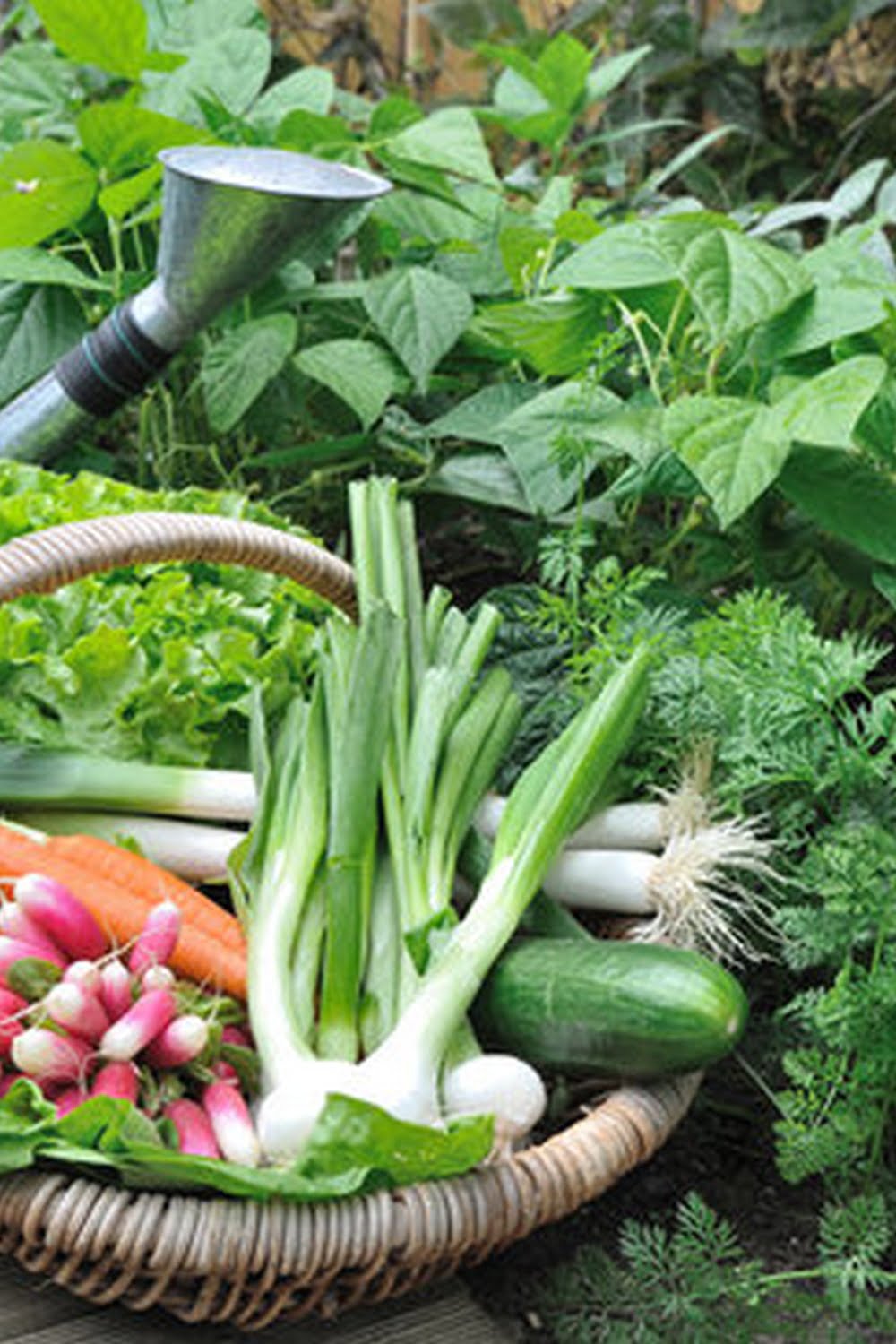Introduction
Having a healthy vegetable garden is a wonderful and rewarding way to improve your diet, save money, and spend time outdoors in the fresh air. A well-tended vegetable garden can also increase the beauty of your property while providing you with nutritious produce you know has not been treated with artificial fertilizers or insecticides. Unfortunately, insects can damage vegetable crops and ruin a beautiful garden if it’s not protected properly.
Fortunately, there are some easy and effective steps you can take to keep insects from damaging your hard work. Here are some tips for how to protect vegetable gardens from pests:
1) Install Natural Barriers: Insects migrate easily over land, so erecting physical barriers in the form of fences around your garden will help keep out bugs. Sticks, branches, stones and other natural materials can act as “fences” that make it hard for crawling bugs or flying pests to get into the garden. You can also cover the top of your garden with netting or fine mesh screens to create a bug-free area.
2) Plant Beneficial Plants: There are certain plants that attract beneficial bugs like ladybugs which prey on pest species like aphids and caterpillars that feed on vegetables. Plant these beneficial plants near or throughout your garden area to bring in all-natural assistance against pests such as basil, yarrow, dill, fennel and calendula flowers.
3) Use Attractants & Repellelnts: You can use commercially available bait traps made from plastic bottles or plates filled with soap water or beer combined with honey which draw bugs away from vegetables; they are particularly useful when placed at the outer perimeter of the garden area. You may also be able to find wasp attractant products at home improvement stores which lure wasps away from veggies by tricking them into believing food is nearby. Additionally, there are various plant extracts (garlic oil, peppermint oil etc.) derived from herbs you can mix together and spray around your plants as a repellent against pest insects; these solutions are more affordable than buying storebought bug sprays while being gentler on commercial crops and edible evidence alike!
4) Prune Carefully & Regularly: Make sure weeds don’t go unattended and prune back dead vegetation outside of the perimeter of your garden — this will offer less shelter for bugs like aphids who thrive among long uncontrolled grasses or untended spaces where they find both food sources (like sap extracted from stems) as well as hiding places for their eggs/larvae offspring – all within close proximity!
Conclusion: With these tips in mind, you’ll be able to protect your vegetable garden from pesky insects without having to use harmful chemicals so that you continue enjoying its bounty!
Identifying Common Garden Insects and the Threat They Pose
Before trying to protect your vegetable garden from insects, it is important to first identify the types of insects in your garden and the damage they can cause. Many insect species have a beneficial role in the garden, pollinating plants, eating pests, and adding to diversity. However, some insects are known to attack and eat vegetable crops. Common examples of “bad bugs” include aphids, cabbage loopers, cabbage worms, Colorado potato beetles, flea beetles, Mexican bean beetle, squash bug and tomato hornworm. Understanding the signs that indicate an insect’s presence—such as chewed or damaged foliage—can help you distinguish them from beneficial bugs like lady beetles or parasitic wasps.
Fortunately there are various ways to protect your vegetable garden from “bad bugs” while preserving the natural balance that keeps birds and bees around. The first step is to start with prevention: regular weeding and mulching can ward off many pests. If spying unwanted critters early enough in the season, consider hand-picking them off of plants and destroying their nests or eggs when possible. Insecticides may be used sparingly if absolutely needed but care must be taken when spraying as some chemicals can do more harm than good by damaging beneficial predators like spiders or dragonflies. Rotating crops seasonally has long been a tactic for avoiding pest buildup in one area; moving plants around prevents overwintering on a particular plot even if just for a growing season’s break. Lastly, releasing adopted populations of wholly beneficial bugs (like ladybugs) can be a fun way to give nature an extra boost of nutrition-related weapons against infestation!
Examining the Risks of Insect Infestation
When attempting to protect your vegetable garden from insect infestation, it is important to examine the risk of such an invasion first. This includes researching the types of insects that could possibly harm your plants, as well as the conditions that these pests prefer. Additionally, considering how recent weather and environmental conditions could be making your garden a more vulnerable target is also worthwhile. Knowing which threats you may face can help you make informed decisions when deciding on possible preventative measures or strategies for dealing with potential infestations.
Keeping Insects Away with Eco-Friendly Methods
In order to protect your vegetable garden from insects, it’s important to use eco-friendly methods that are safe for the environment and won’t harm beneficial species. One of the best ways to keep insects away is to plant companion plants near your vegetables. These plants have strong aromas or poisonous compounds that will repel harmful bugs. Some examples include garlic, chamomile, dill, marigolds, and tansy.
To further protect your vegetable garden from insects, create a healthy environment by keeping soil aerated and weeding regularly, as both practices help reduce the chances of bug infestation. Avoid over-watering and keep foliage dry—that also means removing spent blooms or leaves which can be an area where pests like to hide or breed.
You can even make DIY sprays or traps using garlic or hot pepper solution or create physical barriers with floating row covers or mulches like straw, hay, grass clippings and bark that prevent eggs or larvae from hatching. Planting certain herbs and flowers known to attract beneficial predatory insects such as lacewings can also keep pest populations low and their natural predators on the rise. Just remember not to apply chemical insecticides unless absolutely necessary; some of these can do more harm than good by killing beneficial creatures as well as pests!
Implementing Natural Insect Repellents
One way to defend your vegetable garden from insects is to implement natural insect repellents. Many plants have natural compounds that discourage insects from visiting, so strategically placing certain herbs and flowers around your garden can keep pests away. Marigolds, for example, have a smell that is unpleasant to many bugs such as aphids and Japanese beetles. Other plants like lavender, chives, garlic, thyme, and rosemary are known to repel insects like mosquitoes and fleas too. If you’re looking for an even stronger solution, consider companion planting – planting pest-repelling herbs or flowers alongside vegetables in order to keep bugs away from the plants they would normally want to feed on. Additionally, adding crushed eggshells or coffee grounds around the perimeter of your vegetable garden will act as physical barriers since their jagged edges can poke and scratch any bugs that try to get in. Finally, investing in floating row covers (layers of fabric) can be an effective solution as well because they can act as physical barriers while also being breathable enough to let sunlight through.
Creating a Protective Barrier Around Your Garden
To protect your vegetable garden from insects, one of the best methods is to create a protective barrier around it. To do this, you will need to build frames of netting or plastic fencing around the entire area. This will provide a physical barrier that helps keep out various types of pests including moths and aphids. It can also help prevent larger animals like raccoons, deer, and rabbits from entering the garden and eating your vegetables. Additionally, if you choose to use plastic fencing, it can also act as a sunshade which will help protect your vegetables from getting too much sunlight during hot summer days. As an added benefit, the netting or plastic fence can also help provide some privacy for you and your garden when enjoying it in your backyard.
Exploring Insectary Plants and Their Benefits
Insectary plants are a great addition to any vegetable garden because their presence can help to naturally deter many harmful insects. Insectary plants are simply plants that attract insect predators, such as ladybugs and other beneficial insects, like lacewings and parasitic wasps. These predators consume the pests that would otherwise destroy your vegetable crops. Examples of insectary plants include different types of flowering herbs such as dill, parsley, cilantro, fennel and yarrow. Interplanting these beneficial flowers amongst your vegetables will not only provide an important food source for the predator insects but will encourage them to stick around! Many of these beneficial insects are incredibly efficient at controlling the populations of pests in your garden. Furthermore, you can purchase bottles of already hatched ladybugs or lacewings from garden centers to introduce directly into your patch and give pest control a helping hand.
Growing Insect-Resistant Greens With Plenty of Sunlight
When trying to protect a vegetable garden from insects, be sure to choose greens that are naturally resistant. There are many varieties of vegetables that contain higher levels of compounds which make them less appetizing to pests- such as bitter lettuce or sweet peppers with thicker skins. Plant these bug-deterring vegetables in areas that get plenty of direct sunlight throughout the day, as this will help them actively discourage insects from feasting on crops. Also remember to rotate your plants every year so that plants subject to recurring insect infestations don’t have their problems repeatedly return in the same spot. Finally, regularly clean the surrounding area of any leaves or debris that may attract bugs and other pests that try and take advantage of the vegetation in your garden. Overall, using bug-resistant plants and keeping up with weekly maintenance can help ensure protection against pesky invaders.
Regular Maintenance
One of the most effective ways to protect your vegetable garden from insects is through regular maintenance and keeping it spotless. This involves removing any dead plant matter and debris, such as dying leaves and stalks. Removing these items will eliminate sources of food or shelter for pesky bugs that might be lurking in the garden. Regularly cleaning up can also help reduce the chances of disease, as well as discourage larger animals from entering the garden, who may feast on your hard-earned veggies. Doing this on a daily or weekly basis will ensure that your beloved vegetable garden remains as healthy as possible and provide you with an abundance of tasty produce.
Conclusion
Protecting your vegetable garden from insects is an incredibly important part of maintaining a successful and productive vegetable garden. While not all insects can cause harm, some species of insects, like aphids and beetles, can prey on different vegetables and can spread disease to other plants in the vegetable garden. This can quickly destroy the hard work that you put into it. Therefore, it is essential to practice proper prevention methods to protect your vegetable garden from harmful bugs. These methods can range from using organic pesticides when necessary to encouraging natural predators such as birds and beneficial insects, like ladybugs. Taking the time to research different types of bugs that might cause damage to your garden along with preventive tactics will help you maintain a thriving, bug-free vegetable garden.

If you’re looking to get into vegetable gardening, or are just looking for some tips on how to make your current garden better, then you’ve come to the right place! My name is Ethel and I have been gardening for years. In this blog, I’m going to share with you some of my best tips on how to create a successful vegetable garden.





